 W
WBrian Abel-Smith was a British economist and expert adviser and one of the most influential figures of the twentieth century in shaping health and social welfare. In Britain, his research for the Guillebaud committee in 1956 proved that the NHS provided extremely good value for money and deserved more investment. From the 1960s he was one of a new breed of special advisers to Labour government ministers – helping Richard Crossman, Barbara Castle and David Ennals to reconfigure the NHS, set up Resource Allocation Working Party, and the Black Inquiry into Health Inequalities. Internationally, he steered the development of health services in over 50 countries. He was a key WHO and EEC adviser, intimately involved in setting the agenda for global campaigns such as Health for All by the year 2000.
 W
WRichard Dyke Acland was a British soldier and, later, an Anglican bishop.
 W
WColonel Egerton Hubbard, 2nd Baron Addington VD was a British Peer. He was Member of Parliament for Buckinghamshire from 1874 to 1880, and from 1886 to 1889.
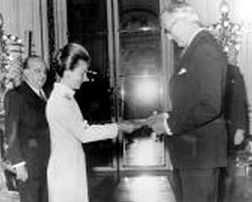 W
WSir Derick Rosslyn Ashe was a British diplomat who served as Ambassador to Romania, Ambassador to Argentina and represented Britain at the United Nations Conference of the Committee on Disarmament.
 W
WMajor Sir Richard Whieldon Barnett was an Irish barrister, sportsman, volunteer officer and freemason who sat as a Member of Parliament in the United Kingdom House of Commons. He also competed at the 1908 Summer Olympics.
 W
WSir Ernest Nathaniel Bennett was a British academic, politician, explorer and writer.
 W
WEdward Ettingdere Bridges, 1st Baron Bridges,, was a British civil servant.
 W
WLieutenant Herbert Denham Brotheridge was a British Army officer who served with the 2nd Battalion, Oxfordshire and Buckinghamshire Light Infantry during the Second World War. He is often considered to be the first Allied soldier to be killed in action on D-Day, 6 June 1944. He was killed during Operation Tonga: the British airborne landings which secured the left flank of the invasion area before the main assault on the Normandy beaches began.
 W
WJohn Hampden Mercer-Henderson, 8th Earl of Buckinghamshire, styled Lord Hobart until 1930, was a British soldier and politician.
 W
WSir William Walter Carlile, 1st Baronet, OBE, DL, JP was a British Conservative Party politician from Gayhurst in Buckinghamshire who served from 1895 to 1906 as the Member of Parliament (MP) for the Buckingham or (Northern) division of Buckinghamshire.
 W
WField Marshal Philip Walhouse Chetwode, 1st Baron Chetwode, 7th Baronet of Oakley,, was a senior British Army officer. He saw action during the Second Boer War, during which he was present at the Siege of Ladysmith in December 1899. He saw action again during World War I on the Western Front, taking part in the First Battle of Ypres, and then in the Sinai and Palestine campaign during which he led his corps at the First Battle of Gaza in March 1917, at the Battle of Beersheba in October 1917 and the Battle of Jerusalem in November 1917.
 W
WColonel Hugh Stewart Cochrane VC was a recipient of the Victoria Cross for his actions, as a 28-year-old lieutenant, during the Indian Mutiny. He later achieved the rank of Colonel and commanded the 43rd Foot and (briefly) its successor, the 1st Battalion, Oxfordshire and Buckinghamshire Light Infantry. Cochrane was born in Fort William, Scotland and died in Southsea in England.
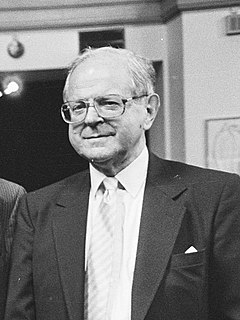 W
WGeorge Robert Acworth Conquest was a British historian and poet. He is best known for his Three Laws of Politics.
 W
WThomas Francis Fremantle, 3rd Baron Cottesloe, 4th Baron Fremantle was a British peer and sportsman who competed in the shooting event at the 1908 Summer Olympics.
 W
WLionel William Crouch was a British solicitor who was killed during the First World War in the Battle of the Somme.
 W
WFrank Debenham, OBE was Emeritus Professor of Geography at the Department of Geography, Cambridge University and first director of the Scott Polar Research Institute.
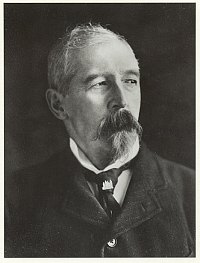 W
WHarold Arthur Lee-Dillon, 17th Viscount Dillon CH FBA was an English antiquary and a leading authority on the history of arms and armour and medieval costume.
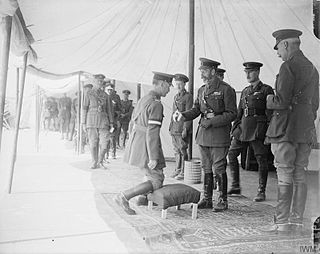 W
WSir Robert Fanshawe, KCB, DSO was a British Army officer, who commanded the 48th Division from 1915 to 1918 during the First World War. He was the youngest of three brothers who all rose to command divisions or corps during the war.
 W
WAlfred Walter Francis Fuller was a British anthropologist and ethnographic collector, best known for his collection of over 6,800 items from the Pacific that is now held in the Field Museum in Chicago.
 W
WMajor-General John Frederick Charles "Boney" Fuller was a senior British Army officer, military historian, and strategist, notable as an early theorist of modern armoured warfare, including categorising principles of warfare. With 45 books and many articles, he was a highly prolific author whose ideas reached army officers and the interested public. He explored the business of fighting, in terms of the relationship between warfare and social, political, and economic factors in the civilian sector. Fuller emphasised the potential of new weapons, especially tanks and aircraft, to stun a surprised enemy psychologically.
 W
WJohn "Jack" Hollington Grayburn VC was an English recipient of the Victoria Cross, the highest and most prestigious award for gallantry in the face of the enemy that can be awarded to British and Commonwealth forces.
 W
WBernard Green also known as Pop, was a British soldier who fought in World War I and World War II. In World War I Green fought in two of the bloodiest battles, the Battle of Somme and the Battle of Passchendaele, and was wounded twice. Green was already 52 when he signed up to fight in the Second World War and his escape from a Stalag Luft III was immortalized in the Hollywood movie The Great Escape. Because of his age at the onset of the Second World War, the troops affectionately called him "Pop".
 W
WWilliam Frederick Danvers Smith, 2nd Viscount Hambleden DL, known as Frederick Smith, was an English hereditary peer, businessman and politician.
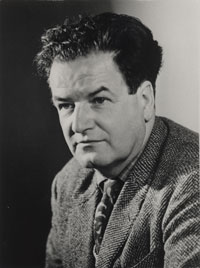 W
WJohn Edward Christopher Hill was an English Marxist historian and academic, specialising in 17th-century English history. From 1965 to 1978 he was Master of Balliol College, Oxford.
 W
WMajor Reginald John Howard DSO was a British Army officer who led a glider-borne assault that captured the Caen canal and Orne river bridges on 6 June 1944, as part of the D-Day landings during the Second World War. These bridges spanned the Caen Canal and the adjacent River Orne, and were vitally important to the success of the D-Day landings. Since the war the bridge over the canal has become known as "Pegasus Bridge", as a tribute to the men who captured it, while the bridge over the River Orne later became known as Horsa Bridge after the Horsa gliders that had carried the troops to the bridges.
 W
WArthur Surridge Hunt, FBA was an English papyrologist.
 W
WLionel Charles Jeffries was an English actor, director and screenwriter. He appeared primarily in films and received a Golden Globe Award nomination during his acting career.
 W
WLieutenant-Colonel Henry William Edmund Petty-Fitzmaurice, 6th Marquess of Lansdowne, DSO, MVO, styled Earl of Kerry until 1927, was a British soldier and politician.
 W
WGeneral Sir Gerald William Lathbury, was a senior British Army officer who fought during the Second World War, serving with distinction with the British Army's airborne forces, commanding the 1st Parachute Brigade in Sicily, Italy and Holland. He later became Governor of Gibraltar from 1965 to 1969.
 W
WJohn George Anderson Lucas MC was a British Army officer of the Second World War who won the Military Cross in 1944 for his actions attacking Japanese machine gun posts while serving with the Chindits in Burma. Michael Allmand won a posthumous Victoria Cross for his part in the same events. Later, Lucas contracted sandfly fever and was left unconscious in a foxhole with just a gun, some bullets and water. Waking a day or two later, he walked for several days to catch up with his men who were astonished to see him emaciated but alive. He was soon back in action. After the war, Lucas returned to Aylesbury to manage JP Lucas & Co., the family furnishing business.
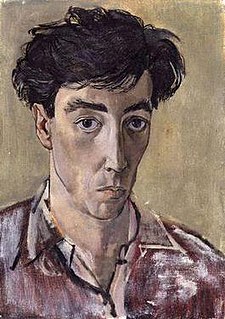 W
WFrancis John Minton was an English painter, illustrator, stage designer and teacher. After studying in France, he became a teacher in London, and at the same time maintained a consistently large output of works. In addition to landscapes, portraits and other paintings, some of them on an unusually large scale, he built up a reputation as an illustrator of books.
 W
WGeneral Sir Herbert John Mogg, was a senior British Army officer who also held the NATO position of Deputy Supreme Allied Commander Europe (DSACEUR) and was "in his time, probably the British army's most popular general".
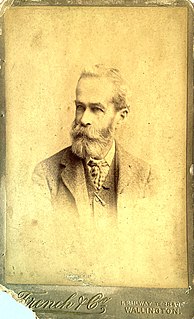 W
WHarry Moody was an English first-class cricketer and civil servant.
 W
WLieutenant-Colonel Roger Carmichael Robert Owen CMG OBE (1866–1941) was a British Army officer who joined the Sudan service in 1903. He was Sudan Agent in Cairo from 1905 to 1908. Owen was then appointed Governor of Mongalla Province in South Sudan from 1908 to 1918.
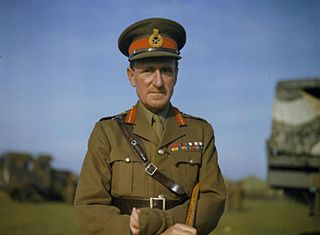 W
WGeneral Sir Bernard Charles Tolver Paget, was a senior British Army officer during the Second World War. He commanded the 21st Army Group from June to December 1943 and was Commander-in-Chief (C-in-C) Middle East Command from January 1944 to October 1946. He was the senior serving general in the British Army.
 W
WMajor-General Ladislaus Herbert Richard Pope-Hennessy was a British Army officer and Liberal Party politician of Irish Catholic descent.
 W
WFrank Soskice, Baron Stow Hill, was a British lawyer and Labour Party politician.
 W
WMajor Allison Digby Tatham-Warter DSO, also known as Digby Tatham-Warter or just Digby, was a British Army officer who fought in the Second World War and was famed for wearing a bowler hat and carrying an umbrella into battle.
 W
WBrigadier Alfred Maurice Toye was an English recipient of the Victoria Cross, the highest and most prestigious award for gallantry in the face of the enemy that can be awarded to British and Commonwealth forces.
 W
WColonel Sir Thomas Courtenay Theydon Warner, 1st Baronet was a British politician, who served as the Member of Parliament (MP) for North Somerset from 1892 to 1895, and for Lichfield from 1896 to 1923.
 W
WFrank Willan was an English rower and Militia officer who rowed for Oxford in four winning Boat Race crews and umpired the race between 1889 and 1902. He was also a yachtsman and one of the founders of the Royal Yachting Association, an alderman, a Deputy Lieutenant for Hampshire, an early motorist, and a military historian.
 W
WSir John Christopher Willoughby, 5th Baronet DSO was a British army officer, Justice of the Peace for Oxfordshire, and landowner of properties in Oxfordshire and Buckinghamshire.
 W
WMajor General Sir (Thomas) John Willoughby Winterton KCB, KCMG, CBE, DL was a British Army officer who was the Military Governor and Commander of the British and US Zone of the Free Territory of Trieste from 1951 to 1954.
 W
WSir Peregrine Gerard Worsthorne was a British journalist, writer, and broadcaster. He spent the largest part of his career at the Telegraph newspaper titles, eventually becoming editor of The Sunday Telegraph for several years. He left the newspaper in 1997.
 W
WEgerton Lowndes Wright was an English cricketer and soldier who played first-class cricket for Lancashire and Oxford University from 1905 to 1910.